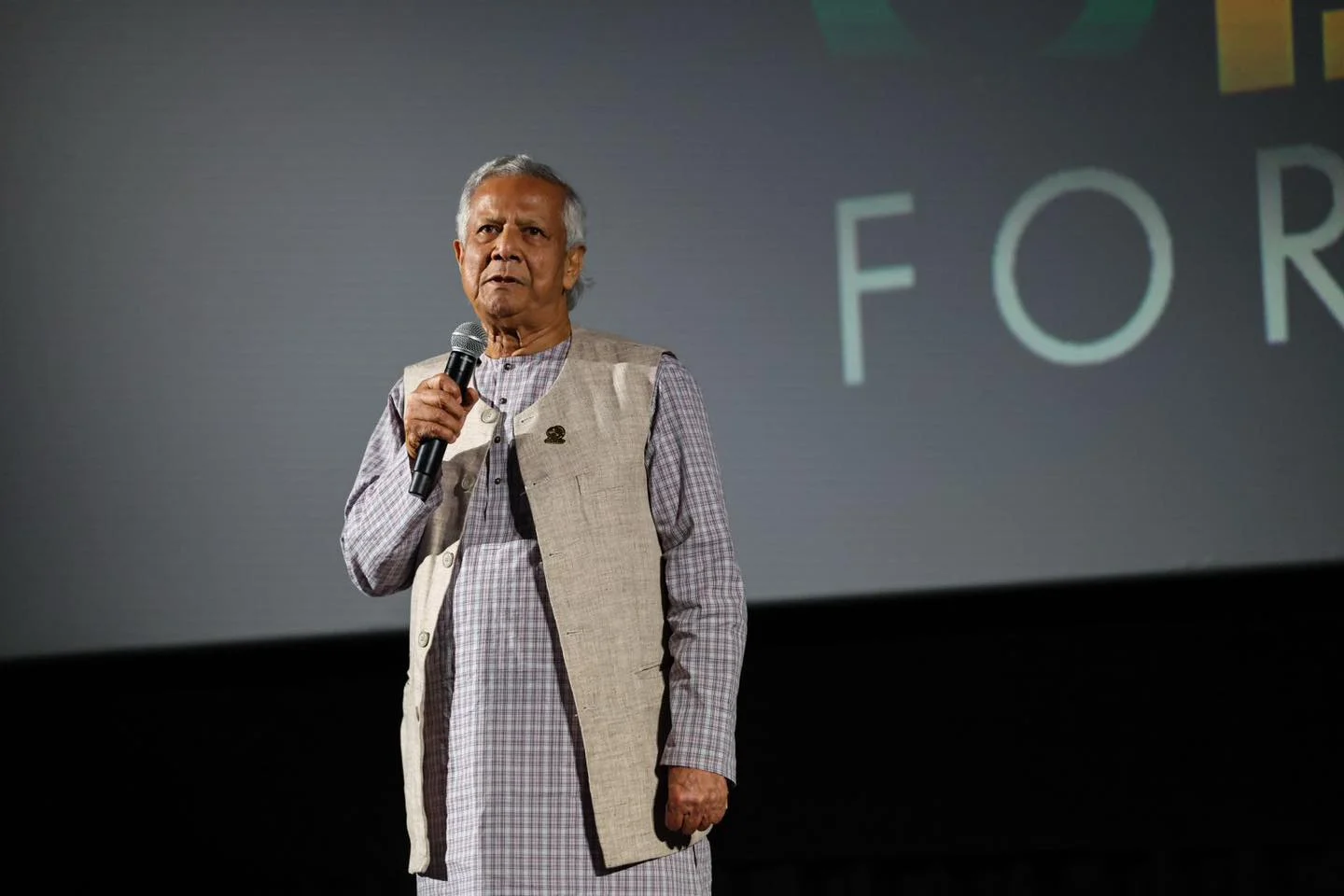CA’s comments on 7 Sisters misinterpreted

Al Mamun Harun Ur Rashid :
Recent remarks by Chief Adviser Dr. Muhammad Yunus regarding India’s northeastern states have sparked media frenzy in India, with accusations of interference in India’s internal affairs.
During a recent visit to China, Dr. Yunus said, “The Seven Sisters are a landlocked region of India.
They have no way to reach out to the ocean. We are the only guardian of the ocean in this region.
So, this opens a huge possibility. This could be an extension of the Chinese economy. Build things, produce things, market things, bring things to China, bring it out to the rest of the world. That’s a production house for you. That’s the opportunity we should seize and implement. We should get it done.”
In his statement, Dr Yunus also highlighted the energy potential of Nepal and Bhutan, noting that their abundant hydropower resources could be integrated into Bangladesh’s industrial framework.
“Nepal has unlimited hydropower, which is a blessing. Bhutan has unlimited power, which is a blessing. We can bring it to our purpose.
From Bangladesh, you can go anywhere you want because the ocean is in our backyard,” he stated.
While Dr. Yunus’s speech emphasized economic opportunities, the Indian media reacted strongly, interpreting it as a strategic threat. The controversy gained further traction when Assam Chief Minister Himanta Biswa Sarma condemned Yunus’s statement on X (formerly Twitter).
“This remark underscores the persistent vulnerability narrative associated with India’s strategic ‘Chicken’s Neck’ corridor. Historically, even internal elements within India have dangerously suggested severing this critical passageway to isolate the Northeast from the mainland physically.
Such provocative statements by Md Yunus must not be taken lightly, as they reflect deeper strategic considerations and longstanding agendas,” Sarma wrote.
Former Indian High Commissioner to Bangladesh, Veena Sikri, also criticised Yunus’s remarks, calling them “shocking.”
“He has absolutely no right to make a statement like that. He knows that the Northeast is an integral part of India, and we have had very close discussions with the Government of Bangladesh on access by Northeast India to the Bay of Bengal. There are formal agreements on this,” Sikri told Indian media.
But this is not the first time, Dr Yunus is talking about the Seven Sisters. The Chief Adviser has repeatedly advocated for economic collaboration among Bangladesh, Nepal, Bhutan, and India’s northeastern states to enhance prosperity for all parties involved.
A month before his China visit, Yunus delivered a similar speech in Dhaka, where he stressed Bangladesh’s strategic advantages and its role as a regional hub.
“Due to our geographical position, we are a truly fortunate nation. If we can provide shelter and facilitate ships from all over the world at our vast seaports, who will be able to stop us?” he said in Dhaka.
He further elaborated on the economic benefits of integrating Nepal, Bhutan, and India’s Northeast into a regional framework.
“Three key regions are waiting for us. In the north, we have Nepal which is fortunate to be at the foothills of the Himalayas but unfortunate not to have access to the sea. If they want to reach the ocean, they must do so through us. We can create that pathway and build a joint economy.
They lack access to the sea, and we lack mountains for hydropower. Together, we can fulfill each other’s needs,” he said.
Yunus also extended a similar vision to Bhutan and the Seven Sisters, stressing that their economies could be strengthened through access to Bangladesh’s ports.
“Bhutan, too, has never seen the ocean. To access the sea, they must pass through our territory. We welcome them. The same goes for India’s northeastern states – the Seven Sisters. They have no direct access to the sea. By partnering with them, we can build a unified economy,” he stated.
Since the fall of the Sheikh Hasina government and her subsequent refuge in Delhi, relations between Bangladesh and India have been strained. Despite multiple attempts, Dr. Yunus has yet to secure a formal meeting with Indian Prime Minister Narendra Modi.
Even during the UN General Assembly (UNGA) meeting last year in New York, Yunus sought a meeting with Modi, which did not materialise.
However, after the China visit, Narendra Modi has agreed to hold a bilateral meeting with Dr Yunus on the sidelines of the BIMSTEC Summit in Bangkok, following the formal proposal from China.
It is expected that this meeting which would be held on Friday would open up some avenues between the two countries.
Furthermore, Yunus has been advocating for reviving SAARC or strengthening regional cooperation under a new framework. However, India has shown little interest in such initiatives.
In a recent proposal, Yunus suggested forming an economic region comprising Bangladesh, India, Nepal, and Bhutan, arguing that such a bloc would benefit all participating nations.
However, Indian media and think tanks have interpreted Yunus’s regional vision as an attempt to bring China closer to India’s sensitive northeastern borders.
The Yunus-led interim government has repeatedly emphasized that regional cooperation, not confrontation, is the key to prosperity.
However, his recent statements in China have fueled suspicions in India, further complicating bilateral ties.
